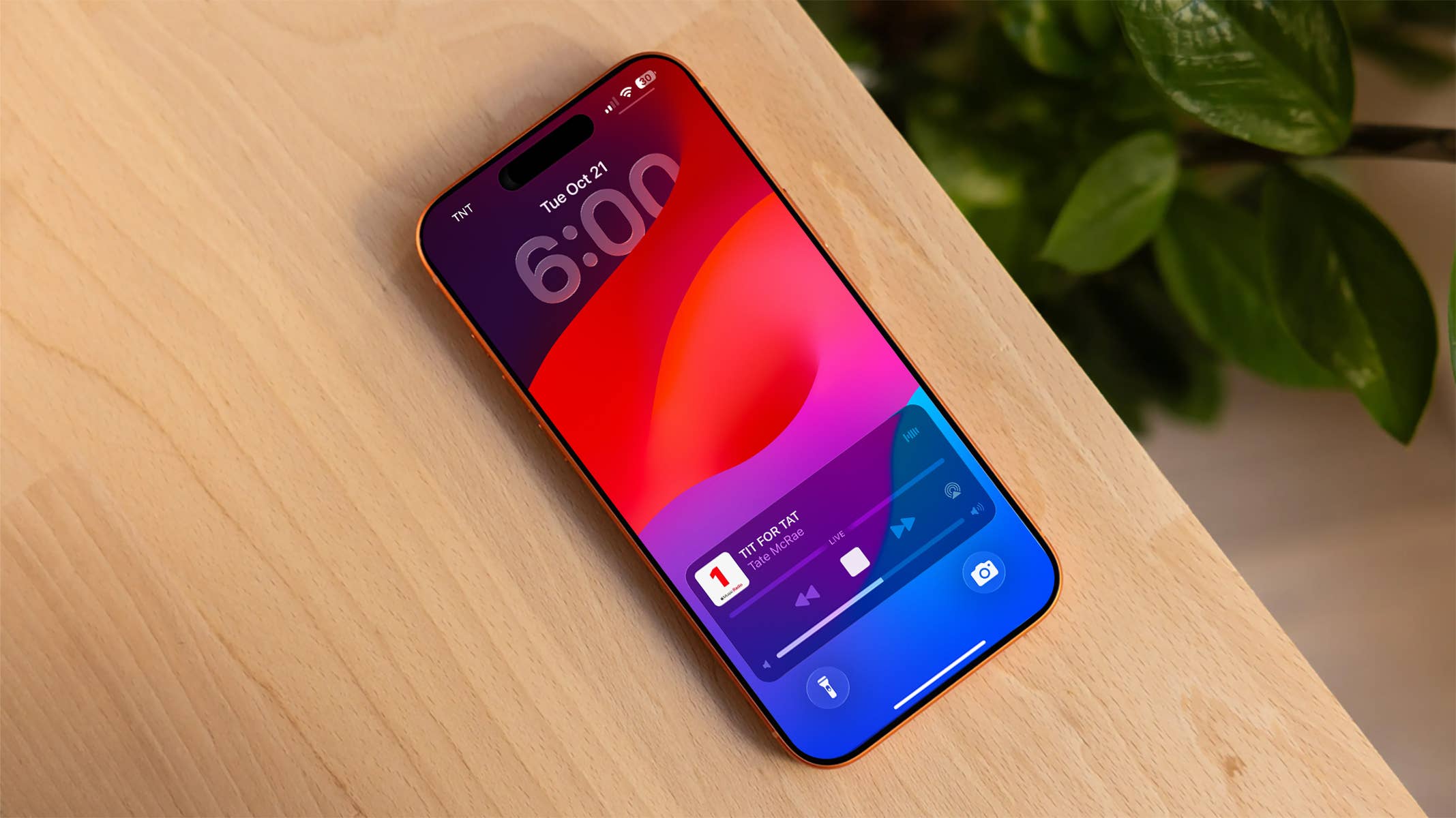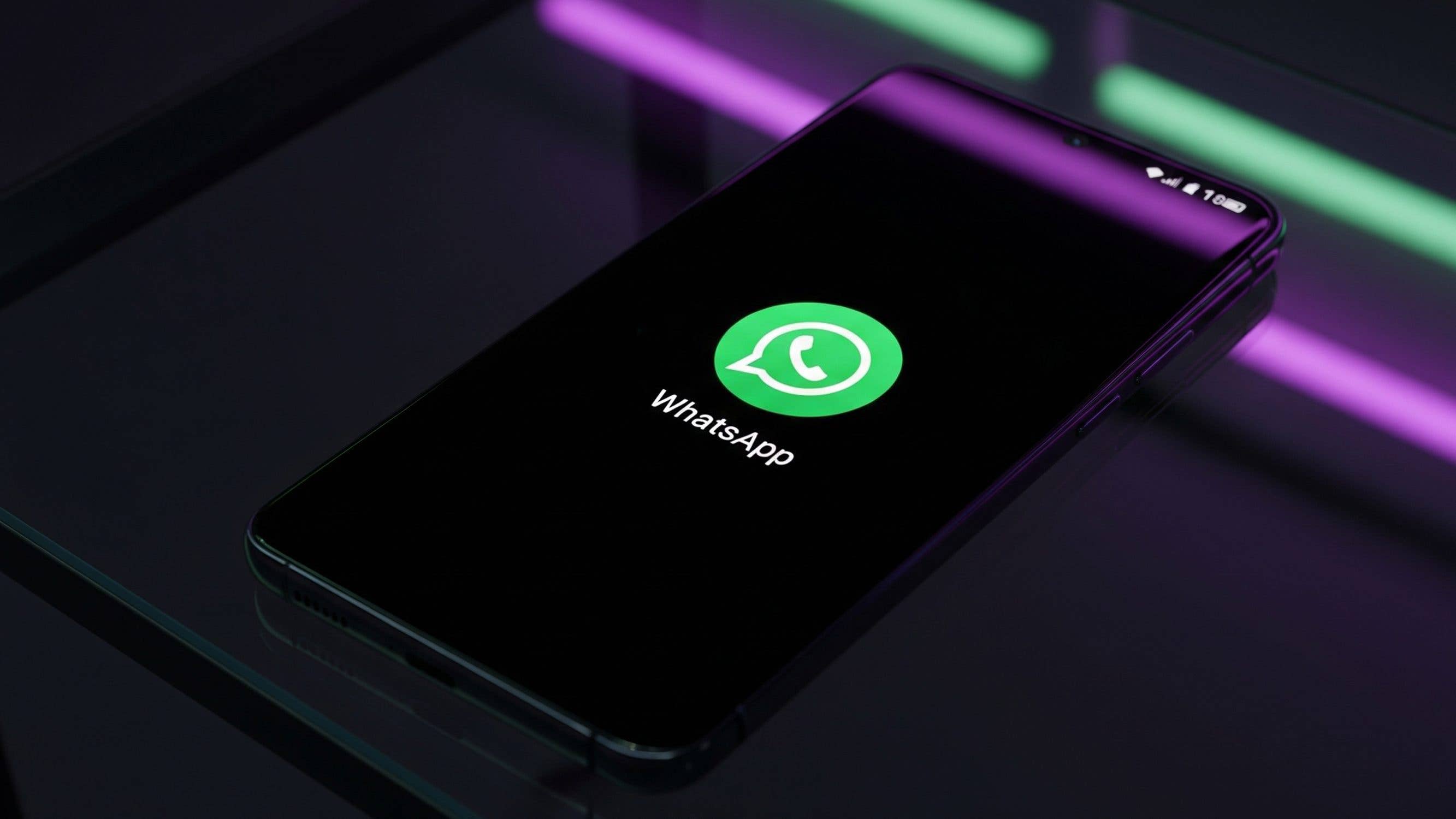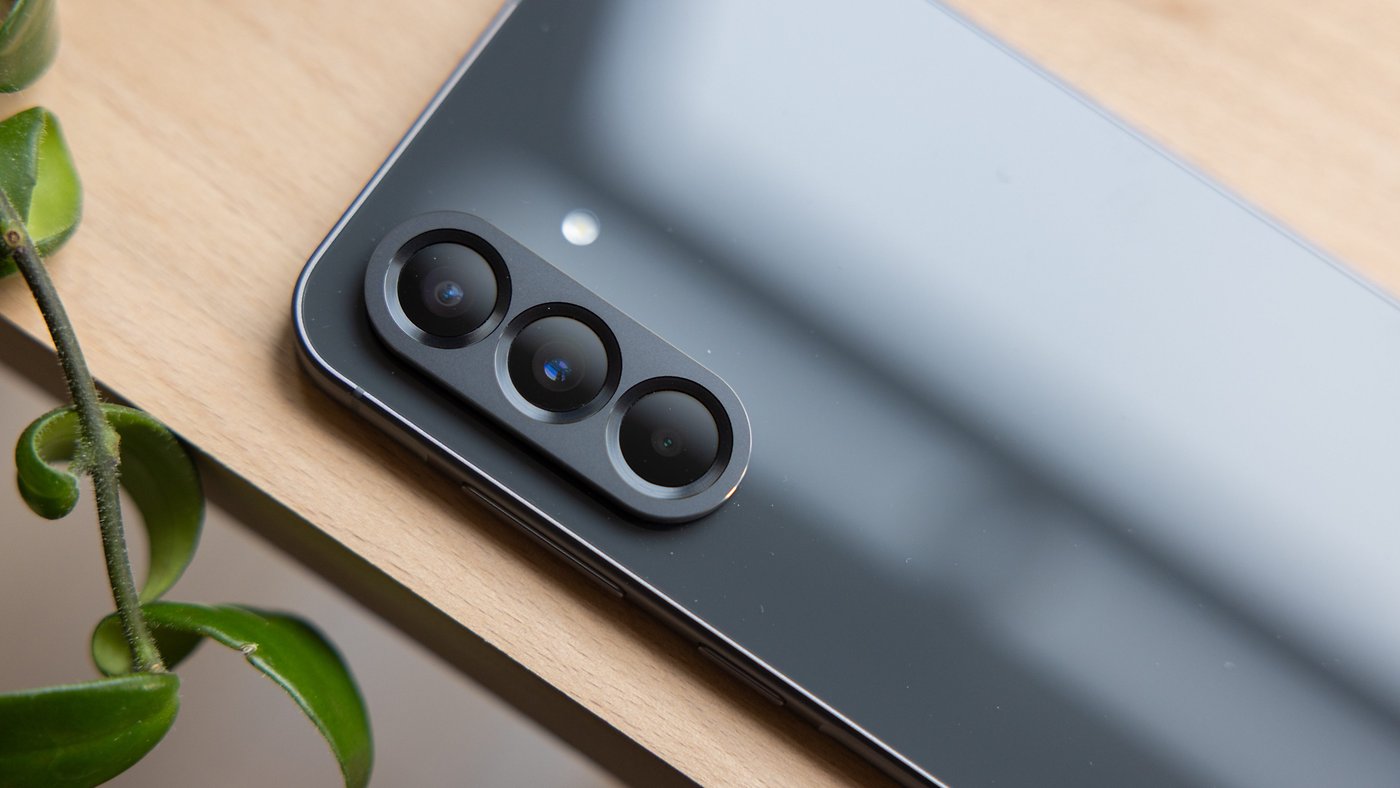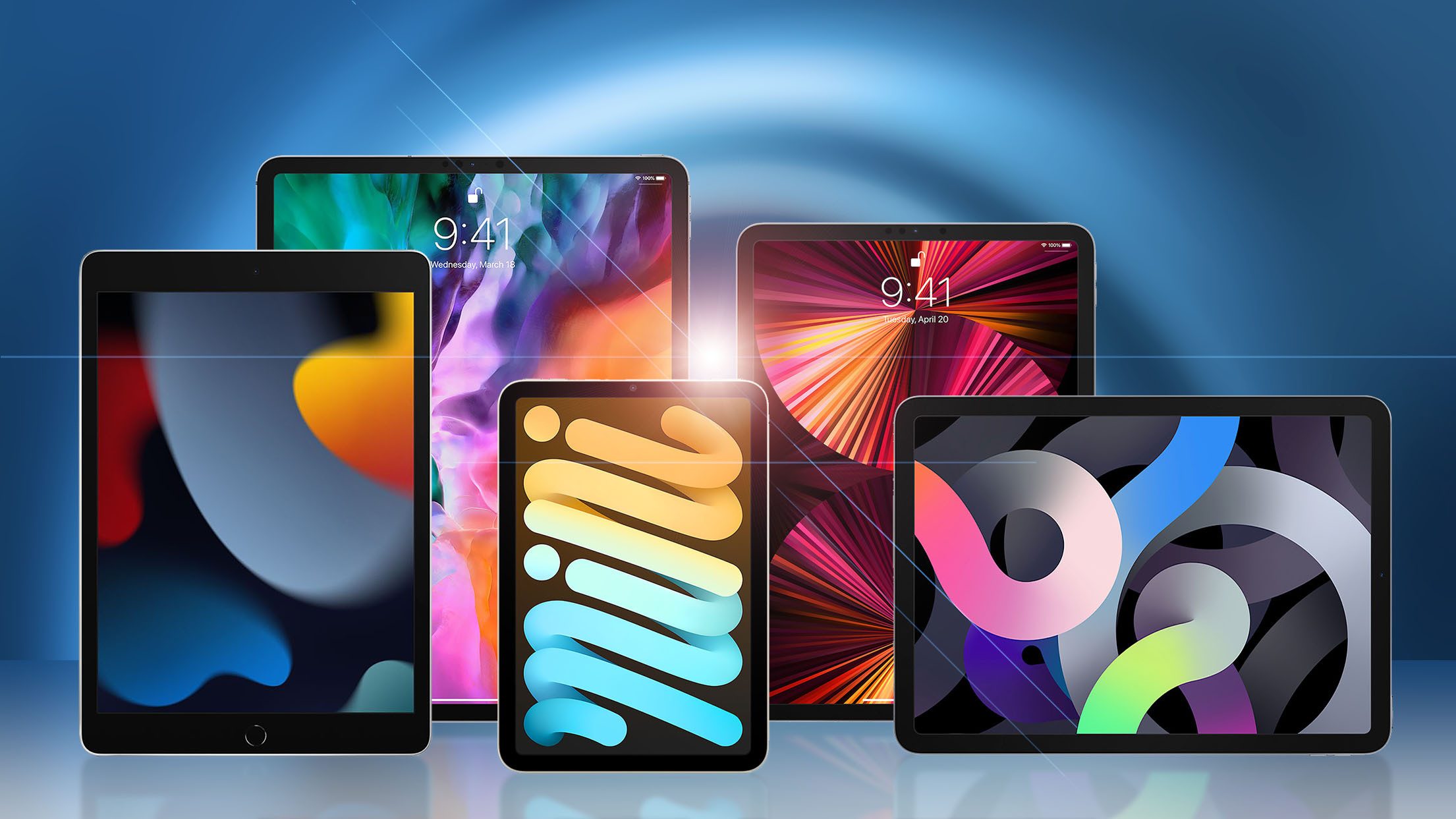
All iPads compared in 2023
| Basic iPad | Smallest iPad | Best value-for-money | Large Pro model | Small Pro model | Old-school iPad | |
|---|---|---|---|---|---|---|
| Product | ||||||
| Picture |
 |
 |
 |
 |
 |
 |
| Display | 10.9-inch display with 2,360 x 1,640 pixels | True Tone | 500 nits | 8.3-inch display with 2,266 x 1,488 pixels | True Tone | 500 nits | 10.9-inch display with 2,360 x 1,640 pixels | True Tone | 500 nits | 12.9-inch display with 2,732 x 2,048 pixels | True Tone | 1,600 Nits | 120 Hz | Mini LED | 11-inch display with 2.388 x 1.668 pixels | True Tone | 600 nits | 120 Hz | 10.2-inch display with 2,160 x 1,620 pixels | True Tone | 500 nits |
| SoC | Apple A14 Bionic | Apple A15 Bionic | Apple M1 | Apple M2 | Apple M2 | Apple A13 Bionic |
| RAM | – | – | 8 GB | 8 and 16 GB | 8 and 16 GB | – |
| Storage | 64 or 256 GB | 64 or 256 GB | 64 or 256 GB | 128 GB to 2 TB | 128 GB to 2 TB | 64 or 256 GB |
| Connectivity | Wi-Fi and LTE model | Wi-Fi and 5G model | Wi-Fi and LTE model | Wi-Fi and 5G model | Wi-Fi and 5G model | Wi-Fi and LTE model |
| Cameras | 12 MP rear camera with f/1.8 aperture 12 MP ultrawide selfie camera with f/2.4 aperture |
12 MP rear camera with f/1.8 aperture 12 MP ultrawide selfie camera with f/2.4 aperture | follow mode |
12 MP rear camera with f/1.8 aperture 12 MP selfie camera with f/2.2 aperture |
Dual rear cameras (12 & 10 MP) | LiDAR sensor TrueDepth camera on the front | Face ID | follow mode |
Dual rear cameras (12 & 10 MP) | LiDAR sensor TrueDepth camera on the front | Face ID | follow mode |
8 MP rear camera with f/2.4 aperture 12 MP ultra-wide-angle selfie camera with f/2.4 aperture |
| Runtime | Up to 10 hours runtime on WLAN Up to 9 hours of runtime on a mobile network |
Up to 10 hours of WLAN runtime Up to 9 hours of runtime on a mobile network |
Up to 10 hours runtime on WLAN Up to 9 hours of runtime on a mobile network |
Up to 10 hours runtime on WLAN Up to 9 hours of runtime on a mobile network |
Up to 10 hours runtime on WLAN Up to 9 hours of runtime on a mobile network |
Up to 10 hours runtime on WLAN Up to 9 hours of runtime on a mobile network |
| Good |
|
|
|
|
|
|
| Bad |
|
|
|
|
|
|
| Rating | Read the iPad 10 (2022) review | Read the iPad mini 6 (2021) review | Read the iPad Air 5 (2022) review | Read the iPad Pro 12.9″ (2022) review | Read the iPad Pro 11″ (2022) review | Read the iPad 9 (2021) review |
| Offers* |
Buy now |
Buy now |
Buy now |
Buy now |
Buy now |
Buy now |
In October 2022, Apple introduced the 6th generation iPad Pro. As an innovation, the manufacturer now offers the same powerful M2 chip found in the MacBook laptop. Apple’s flagship tablet also received upgrades in the connectivity department, with Wi-Fi 6E support.
On the same day, Apple also updated its classic iPad line, which finally made the jump to the USB-C port found in the rest of the iPad range. More than that, the base iPad ditched the front home button, adopting a similar design to the iPad Air, with thin bezels and a slightly increased resolution, powered by the Apple A14 SoC.
In the following, we’ll take a closer look at all iPad models. We present the pros of each model and reveal who the iPad is suitable for. Of course, we will also include current prices to help you decide, even though we tend to focus on the recommended retail prices in our assessment. So if you have your eye on one of the models in the iPad lineup, here are our recommendations.
Table of content:
Apple iPad (10th generation): Starting from $449
The latest basic iPad was released in October 2022. The base iPad broke many traditions in the base model, ditching not only the front home button but also the Lightning port, this last one replaced by USB-C. Although still using Touch ID as its biometric feature, the fingerprint sensor is now housed on the side, similar to the rest of the iPad line.
Removing the front home button allowed the 10th generation iPad to get a bigger screen, 10.9-inch instead of the classic 10.2” used since 2019 in the 7th generation. The slightly bigger screen was accompanied by an increase in resolution, now 2360 x 1640 pixels, instead of 2160 x 1620 in the 9th generation.
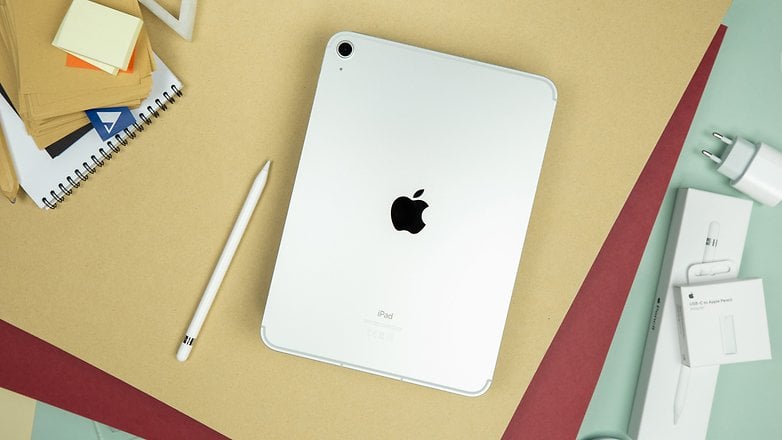
Processing-wise, the 10th gen iPad was upgraded to the A14 Bionic SoC, the same one used in the iPhone 12. It not only promises improvements in terms of performance but also brings support for 5G networks in the cellular model. In the storage department, Apple kept the same 64 and 256 GB options.
Both cameras in the iPad 2022 were also updated, with the main camera getting a resolution bump from 8 to 12 megapixels. The front-facing camera, meanwhile, was moved to the longer side of the tablet, making video calls in landscape mode the default option.

Battery life specs are the same as the previous version, with up to 10 hours of web browsing on the Wi-Fi model, and up to 9 hours when using cellular connectivity. Speaking of the previous model, the 9th generation iPad was not discontinued following the 10th gen release. Apple kept the 2021 model on store shelves as a low-cost alternative to the upgraded model.
iPad 10th generation: Price
| iPad 10th generation | 64 GB | 256 GB |
|---|---|---|
| Wi-Fi | $449 | $599 |
| 5G | $599 | $749 |
| iPad 9th generation | 64 GB | 256 GB |
| Wi-Fi | $329 | $479 |
| 4G LTE | $459 | $609 |
The 9th generation iPad starts from $329. However, the price increases exponentially with more memory and an LTE module. You can refer to the prices in the table above.
Apple iPad mini 2021: Starting from $499
While Apple has retained the familiar design of the basic iPad, the iPad mini experienced a redesign in 2021. The new iPad mini appeared with far thinner bezels than before, sans the home button and the Touch ID sensor. The chassis houses an 8.3-inch Liquid Retina display with IPS technology. Thanks to its resolution of 2226 x 1488 pixels, the pixel density of the iPad mini is very impressive. Fortunately, True Tone support is also included as well as support for the P3 color space and Apple’s second-generation Apple Pencil.
You can choose between Space Gray, Rose, Violet, and Polaris colors for the iPad mini. The build material used is also 100 percent recycled aluminum. The dimensions of the smallest iPad stand at 195.4 x 134.8 x 6.3 millimeters (H x W x D). In large pockets, the Wi-Fi model weighs 293 grams while the LTE model is 4 grams heftier. Other features include a USB-C port at the bottom and a magnetic port for the Apple Pencil 2 on the right side. Compared to the iPad 2021, the iPad mini also offers stereo speakers on both the top and bottom sides.
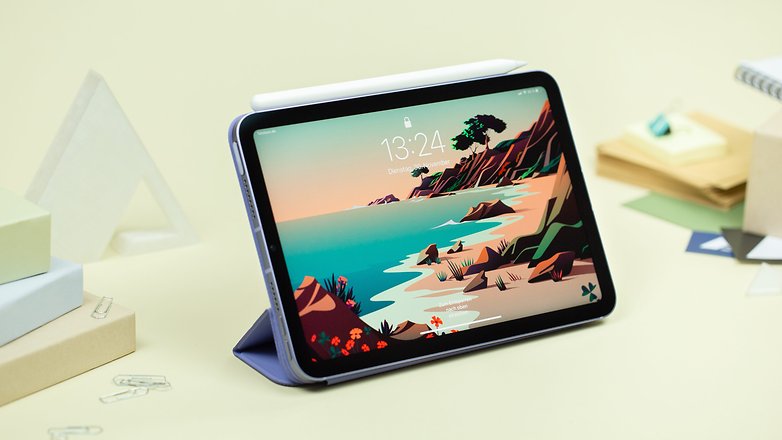
In terms of performance, the iPad mini 2021 is clearly ahead of the base model. This is due to Apple’s A15 Bionic chipset, which is also used in the iPhone 13 range. Half a dozen CPU cores and five graphics cores ensure that you can edit 4K videos or play the latest mobile games without having to suffer long loading times. You can read more about the seemingly inexhaustible performance of the iPad mini in our review.
At this point, we would first like to point out the differences in the cameras to you. The selfie camera offers an ultra-wide-angle field of view, which allows you to use Apple’s follow mode. It has a 12 MP resolution and supports the Smart HDR 3 standard as well as video recordings in 1080p at 60 frames per second. The main camera on the back can record videos in 4K and also supports 60 FPS. However, you have to settle for 12 megapixels for videos—but the main camera is much faster with an aperture of f/1.8.

Although the iPad mini’s battery capacity is no doubt smaller due to its construction, Apple advertised battery runtimes of up to 10 hours when surfing the web via WLAN networks. When surfing via the cellular network with the LTE model, you can manage 9 hours without a power outlet. If the iPad mini needs to be plugged in, it can be done via USB-C. Thanks to USB 3.1 Gen 1, the port also allows connections to external displays or hard drives. The data rates are correspondingly high with a maximum of 5 gigabits per second.
iPad mini 2021: Price
| iPad mini 2021 price | 64 GB | 256 GB |
|---|---|---|
| Wi-Fi | $499 | $649 |
| 4G LTE | $649 | $799 |
If you decide to buy the iPad mini, you will have to spend at least $499 a pop. In addition to the 64 GB model, there is also a 256 GB model. As with the basic iPad, Apple also differentiates between cellular and WiFi-only models. All prices can be found in the table above this paragraph.
Apple iPad Air 2022: Starting at $599
On March 8, 2022, Apple updated the iPad Air. The new version offers the same display in the same form factor as the previous generation and offers quite a few new features overall. Nevertheless, the update is significant because Apple has integrated the powerful M1 SoC into the 5th-generation iPad Air. This puts the Air model roughly on par with the iPad Pro models from 2021 in terms of performance.
As another innovation, Apple now has the front camera of the iPad Air with an ultra-wide-angle lens and a resolution of 12 megapixels. This makes the Air the last remaining model to support the “Center Stage” feature, which automatically tracks you during video conferences and is better suited for multiple people on group calls.
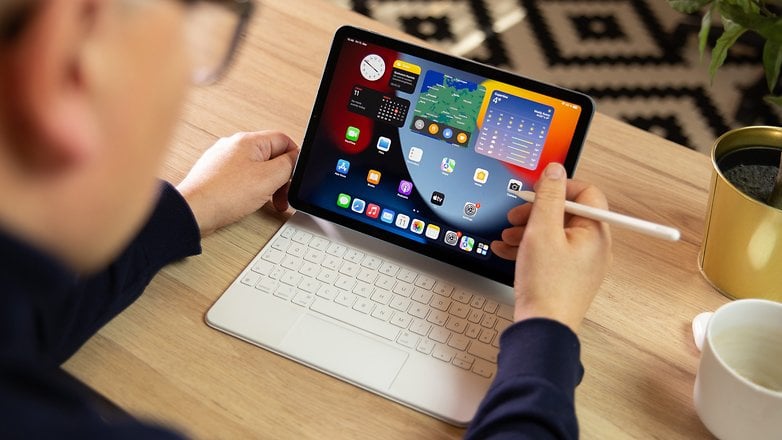
In terms of connectivity, Apple still relies on a USB-C port at the bottom, with USB 3.1 in the 2nd generation, data rates of up to 10 gigabits per second are also possible. You can connect displays with up to 6K at 60 hertz.
You can connect to the iPad Air wirelessly via WiFi 6 and Bluetooth 5.0. The new SoC also turns the cellular model into a 5G version, which ensures faster data rates on the go. These are the suggested prices for the new model, with a price increase of 20 dollars for the 5G models:
iPad Air 2022: Costs
| iPad Air 2022 | 64 GB | 256 GB |
|---|---|---|
| Wi-Fi | $599 | $749 |
| 5G | $749 | $899 |
Apple iPad Pro 2022: Starting from $799
The two Pro models start from $799 onwards with the iPad Pro (11-inch) while the larger 12.9-inch variant is priced from $1,099. You can only choose between Space Gray and Silver colors. As we will find out later, there are a lot more storage options to choose from.
Since there are two models for the Pro model, the displays also differ. Apple uses an IPS panel with LED backlight on the 11-inch variant with a resolution of 2,388 x 1,668 pixels. For the first time, the manufacturer offers a refresh rate of 120 Hertz. The display is also True Tone compatible, and it also supports the large P3 color space.
Apple uses a Liquid Retina XDR display for the 12.9-inch model, where the modern mini-LED background technology delivers a resolution of 2,732 x 2,048 pixels. Pro Motion support is also on board here. However, the display of the 12.9-inch model is superior in terms of brightness as it achieves a maximum of 1600 nits, provided you watch HDR content. The contrast ratio of 1,000,000:1 is almost as good as OLED. Both displays are compatible with the second generation of the Apple Pencil.
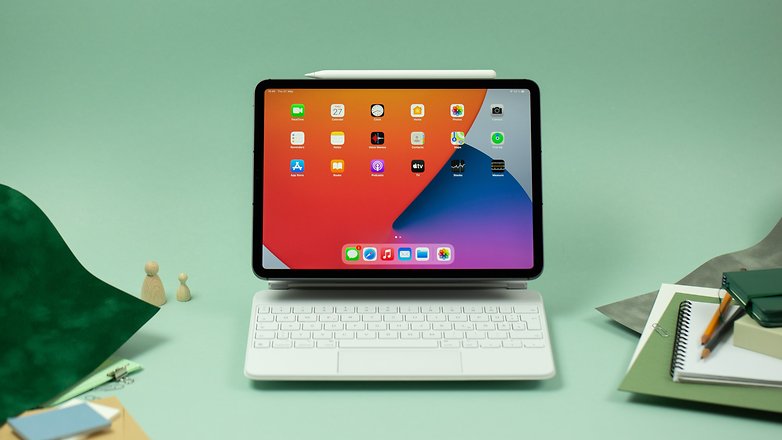
The different display sizes naturally lead to different device sizes. The iPad Pro 11 measures 247.6 x 178.5 x 5.9 millimeters, while the 12.9-inch model is much larger and thicker at 280.6 x 214.9 x 6.4 millimeters. Needless to say, the weight of the larger iPad Pro is also higher, where the 11-inch model weighs 466 grams sans the Cellular module and 468 grams with the 5G module. The 12.9-inch iPad Pro tips the scales at 682 or 684 grams, respectively. The case is made of aluminum for both.
Compared to all other iPad models, the Pro models offer a clear performance advantage. This is due to the presence of Apple’s M2 chips. The ARM-based SoCs offer eight CPU cores, eight GPU cores, and are mated to either 8 or 16 GB RAM. Thus, the iPad Pro models from 2022 are currently the most powerful tablets available on the market.
The tablets also offer advantages in terms of multimedia features. The iPad Pros offer four speakers at the top and bottom and a total of four microphones. In addition, the models support Apple’s reliable Face ID, which allows you to unlock the tablet by looking at the display. A Smart Connector for accessories is also on board, and the Pro models even support USB 4 and Thunderbolt 3 via USB-C.

Apple also offers more powerful cameras on the most expensive iPads. The selfie camera, which is located next to the sensors for Face ID, comes at 12 megapixels resolution. As a “TrueDepth” camera, it supports a digital portrait mode. The aforementioned follow mode is also included as well. The selfie camera covers a field of view of 122 degrees. One thing that is worth mentioning is the support of Smart HDR 3 apart from video recordings in 1080p at a maximum of 60 frames per second.
At the back, the most expensive iPad models offer two cameras combined with a LiDAR sensor. The Pro camera system offers a 12 MP main camera and an f/1.8 aperture as well as an ultra-wide-angle camera with a 125-degree field of view and an aperture of f/2.4. The wide-angle camera manages video recording at 60 frames per second at a maximum 4K resolution, while for the ultra-wide-angle lens, you will have to be content with Full HD. Another exciting feature is the LiDAR sensor, which can obtain accurate depth information. This makes the Pro models particularly suitable for AR applications and you can even record 3D scans of objects.
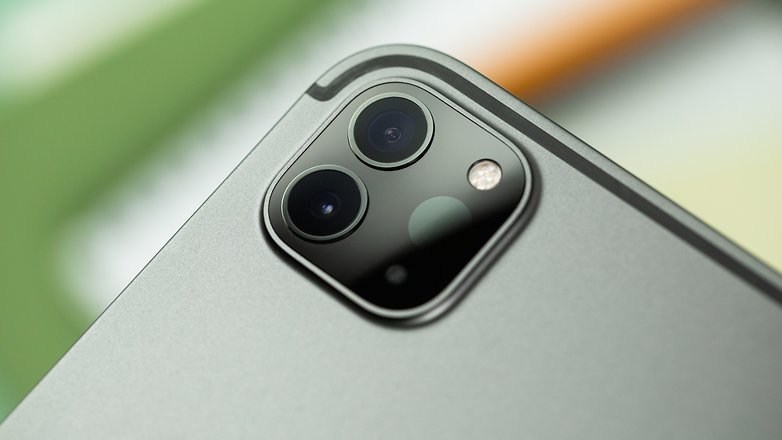
The battery capacities also differ between the two models. The 11-inch model offers 28.65 watt-hours, while the 12.9-inch version offers 40.88 watt-hours. Like all other iPads, this should allow up to 10 hours of surfing or videos on Wi-Fi or 9 hours when surfing via the mobile data network.
iPad Pro 2022: Costs
| iPad Pro 2022: 11 inch | 128 GB | 256 GB | 512 GB | 1 TB | 2 TB |
|---|---|---|---|---|---|
| Wi-Fi | $799 | $899 | $1,099 | $1,499 | $1,899 |
| 5G | $999 | $1,099 | $1,299 | $1,699 | $2,099 |
| iPad Pro 2022: 12.9 inch | 128 GB | 256 GB | 512 GB | 1 TB | 2 TB |
| Wi-Fi | $1,099 | $1,199 | $1,399 | $1,799 | $2,199 |
| 5G | $1,299 | $1,399 | $1,599 | $1,999 | $2,399 |
Pricing is particularly complicated for the Pro models. There are ten different prices for all 5G and Wi-Fi variants and the many storage versions. For the sake of an overview, we have summarized them for you above.
Software
iPadOS 16
In the introduction to this article, we wrote about one big advantage that all iPads have in common. This, of course, refers to Apple’s operating system. iPadOS 16 is sleek, easy to use, and powerful. At the same time, it is a heavily customized version of Apple’s iOS 16, and this sets Apple apart from the competition. After all, Android is still cumbersome and error-prone on tablets.
We have summarized all features of iPadOS 16 where we have taken a closer look at the software functionalities that Apple offers for its iPads.
Accessories
Cases and keyboard covers

For additional flexibility and security in everyday life, Apple offers a number of accessories for all iPad models. Especially popular among users are cases and keyboard covers, which can add important functions in addition to more security. For example, you can use a Smart Folio cover to protect the display of your iPad as well as to angle the entire tablet a bit. The keyboard covers also help you type, and with more expensive models you even get an additional trackpad.
Buy iPad cases from Apple
| Model | Product page |
|---|---|
| Apple iPad 10th generation | Order now* |
| Apple iPad mini 6th generation (2021) | Order now* |
| Apple iPad Air 5th generation (2022) | Order now* |
| Apple iPad Pro 11” (2022) | Order now* |
| Apple iPad Pro 12.9” (2022) | Order now* |
Apart from Apple, other manufacturers also offer cases and keyboard covers for Apple’s iPad. When buying, you should make sure that the case is actually compatible with your model and screen size. It is also particularly practical if the accessory makes use of Apple’s Smart Connector.
Styluses for Apple’s iPads
Apple’s own styluses are called “Apple Pencil” and “Apple Pencil 2nd Generation”. We have already described the compatibilities in detail. In short, all iPads are compatible with the 2nd generation, except for the basic iPad. This is because only this has the required Lightning port to charge the stylus. However, the first generation Pencil cannot be magnetically held on all the other iPads. It is priced from $99 and the 2nd generation Apple Pencil costs $129.
Apple is not the only supplier of styluses though as there are third-party styluses out there that are compatible with the Apple iPad. However, do be cautious as you might end up with a lemon. In order to avoid that, check out our list of the best Apple Pencil alternatives.
AirPods, MacBooks, and other peripherals
All iPad models support the WLAN and Bluetooth wireless standards. This makes them compatible with many other accessories already available in the market. Apple especially integrates its own devices seamlessly into its respective operating systems. Here are two examples: If you power up Apple’s AirPods headphones, your iPad automatically recognizes them. The headphones also automatically detect which Apple device is currently playing music.
If you also use your Apple hardware with a shared Apple ID, you automatically link the devices together. If you click “Take Photo” on your Mac desktop, you can select your iPad here. Linking multiple devices is one of the clear strengths of choosing an iPad and other Apple devices.
Upcoming iPads: New releases in 2023?
In 2023, Apple is expected to unveil new iPad models. However, since the lineup became even more robust last year, we are keeping our expectations low for the next generation of iPads. Nevertheless, these devices are likely to feature improved performance, enhanced displays, and updated designs, further solidifying the iPad’s position as a leader in the tablet market.
In this section, we will discuss what to expect from the anticipated releases for 2023, including the iPad 11, iPad Pro, iPad Air, and iPad Mini. Please note that these are only speculations based on the trends observed in Apple’s product releases and improvements over time, as well as leaks from industry insiders. As of March 2023, there is no official information or confirmation regarding the new iPad lineup for 2023.
| Upcoming model | Possible release date |
|---|---|
|
11th-Generation iPad |
2024 |
| 7th-Generation iPad Mini | 2023 |
| 6th-Generation iPad Air | 2024 |
| 7th-Generation iPad Pro | 2024 |
11th-Generation iPad
Last year, the standard iPad came closer to the Air model in terms of design and features, making significant updates for the next generation less likely. So, what can we expect for the iPad 11? Potential updates include a performance boost with the A15 Bionic chip, improving multitasking and app performance compared to the A14 Bionic in the 10th-generation iPad.
The iPad 11 might offer support for the second-generation Apple Pencil, and there’s a possibility of increased base storage, such as 128 GB instead of 64 GB, providing users with more space for apps, documents, and media. However, this is really a long shot. It’s worth mentioning, though, that many Apple specialists are skeptical about the release of the iPad 11 in 2023.
7th-Generation iPad Mini
The iPad Mini, being the smallest and most portable iPad, is anticipated to receive an upgrade in 2023 as the last release occurred in September 2021. While the design might remain unchanged, the next generation could benefit from a chip update. Given that the current model is powered by the A15 Bionic chip, the 2023 iPad Mini is expected to boost its performance with the M1 chip upgrade.
We would also expect to see a small but effective change in design: the landscape front camera we saw in last year’s iPad 10.
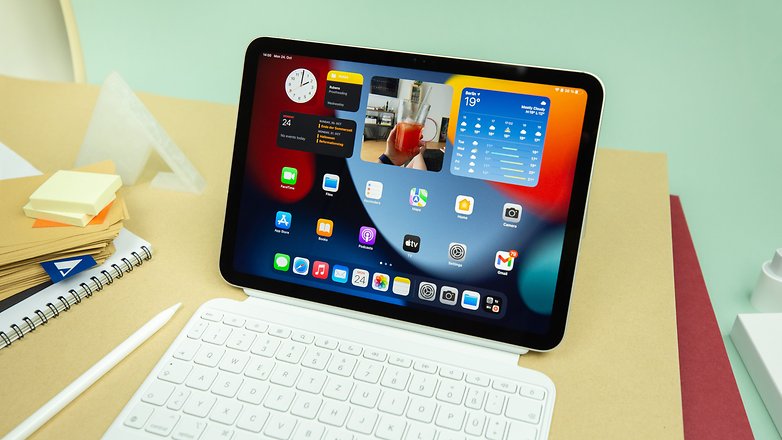
6th-Generation iPad Air
The iPad Air, positioned between the standard iPad and iPad Pro, offers a balance of performance and affordability. Since the current variant already runs with the M1 chip, if Apple releases the 6th-generation iPad Air in 2023, history suggests it would be built with the M2 SoC—or even retain the M1 chip in the series.
Apple may also introduce the ProMotion display technology for the new iPad Air, providing a better user experience with fluid scrolling and responsive touch controls. A possible minor design tweak could be the addition of the horizontal selfie camera in this lineup as well.
7th-Generation iPad Pro
Similarly to the iPad 11, much of the industry has doubts about a refreshed iPad Pro lineup this year. Since the current generation of Apple’s flagship models already offers state-of-the-art performance and premium features for professionals and creatives, it’s very unlikely that we will see an upgrade of this lineup in 2023.
Additionally, the next generation is expected to feature a new set of OLED displays, which, according to the latest rumors, will be available only in 2024. This reinforces the possibility of a new release only by then.
That’s it for the next generation of Apple iPads. By adding this upcoming section to the iPad buying guide, we aim to provide you with an overview of the speculated features that may (or may not) arrive in the world’s most popular tablet lineup. And even more importantly: if the devices are expected to be upgraded in 2023. This way, you can be better informed when choosing your next iPad or iPad Pro.
All iPad generations at a glance
Apple iPhone: Model overview
| Year | Models | Highlights |
|---|---|---|
| 2022 |
iPad Pro 11″ and 12.9″ 2022 |
|
| 2022 | iPad 10th generation |
|
| 2022 | iPad Air 2022 |
|
| 2021 |
iPad mini 6th generation |
|
| 2020 | iPad 8th generation iPad Air 4th generation iPad Pro 4th generation |
|
| 2019 |
iPad 7th generation iPad Air 3rd generation iPad mini 5th generation |
|
| 2018 | iPad 6th generation iPad Pro 3rd generation |
|
| 2017 | iPad 5th generation iPad Pro 2nd generation |
|
| 2016 | iPad Pro with 9.7 inches |
|
| 2016 | – | |
| 2015 | iPad mini 4 iPad Pro |
|
| 2014 | iPad Air 2 iPad mini 3 |
|
| 2013 | iPad Air iPad mini 2 |
|
| 2012 | iPad 3rd generation iPad 4th generation iPad mini |
|
| 2011 | iPad 2 |
|
| 2010 | iPad |
|
Article updated in March 2023 to add the “Upcoming lineup” section. Comments posted before the update were kept and may refer to previous versions of this list.



